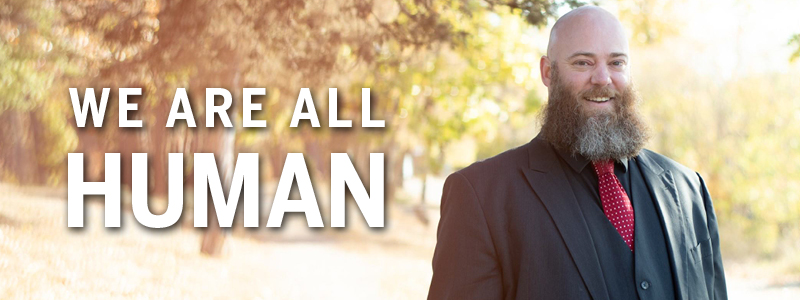
“Not everything that weighs you down is yours to carry.”
By: Landon Ascheman
This piece of wisdom stuck out to me as I was listening to the latest book by a wonderful Minnesota author, Dakota Krout. His books have helped me get through the pandemic.
I was thankful for those books. They gave me a chance to get away, if only mentally. My wife and I were locked inside with a two-year-old year old and another on the way, everyone staying separate and just trying to make it through the day. Fears and anxiety had to wait, my mind had something else to do, even if it was only five minutes here or ten minutes there. While a lot has changed regarding the pandemic, the stress, anxiety, and depression that our profession endures is still intense.
Early in the pandemic, I would have paralegals and law clerk interns reach out regarding assignments and meetings. Generally there was a health concern—someone was sick, or not doing well. The standard response was always, “We are all human, health comes first.” Then we got a little deeper into the pandemic, I would be on video calls with the court or the prosecutor, and someone would be sick or not doing well. Continuances were granted, accommodations were made: after all, we are all human, and health should come first.
I was proud of our profession and how those that I worked with responded to the health needs of those around us. There was a level of compassion and understanding that aren’t often attributed to the stereotypical lawyer.
That doesn’t mean that we have solved our issues as a profession, but it gives me hope that we can get there. I think it’s easier for us to be compassionate and make accommodations for physical health concerns. But we don’t do a great job when it comes to mental health. We talk about it, but we don’t really take the time to adjust for it in the same way that we have for COVID-19.
I think that for many of us, there is a sense that acknowledging our mental health challenges makes us weak. Especially in a profession where so much of our job is both mentally taxing and competitive.
I think that for many of us, there is a sense that acknowledging our mental health challenges makes us weak. Especially in a profession where so much of our job is both mentally taxing and competitive. We believe our profession demands Instagram influencer levels of perfection when it comes to publicly presenting our mental state. We constantly want to appear like we are in control, to reassure our clients, posture for opposing party, instill confidence in the judge and jury. We use filters to hide the fact that many of us deal with things like anxiety and depression, whether on large or small scales.
But I want to remind you that you’re not alone, you don’t need to be alone, and it’s okay to be human like the rest of us. We often forget that underneath that veneer of perfection that we all try to show everyone, we are human. We are not perfect, and that includes our mental health as well.
Beyond that, we need to be looking for ways to improve our profession to recognize the fact that we are all human. It’s not enough for us to say “take care of yourself, health comes first” if we turn around and expect ourselves and others to work 70+ hour work weeks, or file on a Friday afternoon, knowing it will cause opposing counsel to have to work all weekend. To steal a line from Professor Natalie Netzel:
“Merely preaching self-care, in a profession that makes little space for it, makes it a kind of unfunded mandate—one more way lawyers fall short. One more way to fail. We need to move in the direction of “mutual care.” By this I mean that we need to work together to create a profession that allows and respects the time and space needed to take care of oneself. We need to celebrate healthy boundaries and stop the glorification of toughing it out.”
We have a lot of work to do on this front. But after how I saw our profession take care of one another during the COVID pandemic, I believe we can address the mental health pandemic as well. I welcome your thoughts. If you could change the legal profession to improve mental health, what would you do?
I want to give a special thank you to Professor Natalie Netzel and Joan Bibelhausen for their thoughts and work in this area. For more information on the topic, please checkout Institute for Wellbeing in Law https://lawyerwellbeing.net/ and, as always, the essential services of Lawyers Concerned for Lawyers.
Landon Ascheman
landon@aschemanlaw.com
Landon Ascheman is the president of the
Hennepin County Bar Association. He is a solo practitioner with
Ascheman Law focusing primarily on criminal law.